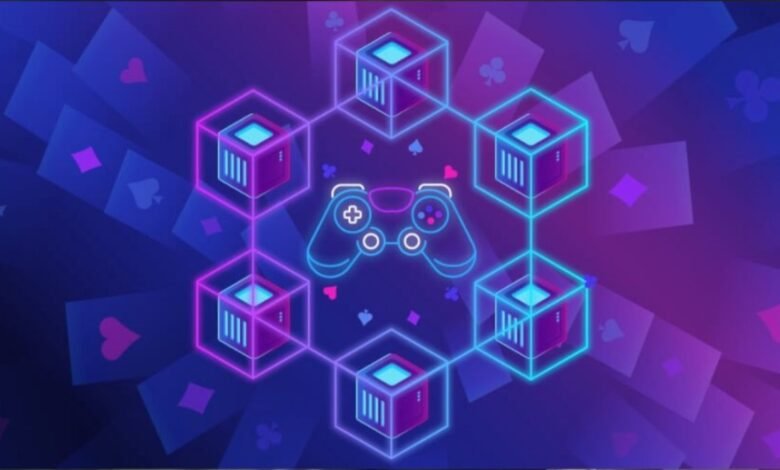How Mobile Games Are Leveraging Blockchain Technology

As mobile gaming continues to grow into a multi-billion-dollar industry, developers and companies are constantly seeking innovative ways to enhance player experience, security, and monetization. One of the most promising technologies in recent years that has begun to make a significant impact in mobile gaming is blockchain. Originally developed as the underlying technology for cryptocurrencies like Bitcoin, blockchain has evolved far beyond its initial purpose. Today, it is being leveraged across various industries, with mobile gaming emerging as one of the most exciting areas of application. This article explores how mobile games are leveraging blockchain technology to revolutionize the gaming experience, offering insights into the benefits, challenges, and future prospects of this dynamic intersection.
Understanding Blockchain Technology
Before delving into how blockchain is transforming mobile games, it’s essential to understand the basics of blockchain technology. At its core, blockchain is a decentralized, distributed ledger system that records transactions across multiple computers. This decentralized nature means that no single entity has control over the entire network, making it inherently secure and transparent.
Each block in a blockchain contains a list of transactions, and once a block is completed, it is added to the chain in a linear, chronological order. These blocks are secured through cryptographic hashing, which ensures that the information in the block cannot be altered without altering all subsequent blocks—a nearly impossible task. This immutability is one of the key features that make blockchain so appealing for various applications, including mobile gaming.
Enhancing In-Game Purchases and Ownership
One of the most significant ways mobile games are leveraging blockchain technology is by transforming in-game purchases and asset ownership. Traditionally, in-game items such as skins, weapons, and other virtual goods are purchased through centralized platforms, with players never truly owning the assets they buy. These items are often tied to a specific game and cannot be transferred, sold, or traded outside the game’s ecosystem.
Blockchain technology changes this by enabling true ownership of digital assets through non-fungible tokens (NFTs). NFTs are unique digital tokens that can represent ownership of a specific item, character, or even a piece of in-game real estate. Because these tokens are stored on a blockchain, players have full control over their assets. They can trade them on secondary markets, use them across different games that support the same blockchain, or even sell them for cryptocurrency or real money.
This level of ownership and flexibility is unprecedented in the gaming world. It not only enhances the gaming experience by giving players more value for their purchases but also opens up new opportunities for monetization. Developers can create more valuable and desirable in-game items, knowing that players will be willing to pay a premium for assets they can truly own and control.
Decentralized Gaming Economies
Blockchain technology is also paving the way for decentralized gaming economies. In a traditional game economy, the game developer or publisher has full control over the in-game currency and the rules that govern the economy. This centralized control can lead to issues such as inflation, unfair practices, or even the devaluation of in-game currency due to mismanagement.
With blockchain, mobile games can create decentralized economies where the players have more influence over the economic system. In these decentralized economies, in-game currencies are often represented by cryptocurrencies or tokens that exist on a blockchain. These tokens can be earned through gameplay, traded with other players, or exchanged for real-world money. Because the blockchain is transparent and immutable, players can trust that the value of their tokens is secure and not subject to manipulation by the game developer.
Moreover, decentralized economies allow for the creation of complex, player-driven marketplaces where supply and demand dictate prices, and players can earn a living by participating in the game. This model not only enhances player engagement but also introduces new business models for game developers, such as earning a commission on peer-to-peer transactions or taking a percentage of the sales of in-game assets.
Enhancing Security and Reducing Fraud
Security is a significant concern in the gaming industry, particularly in mobile games, where players often spend real money on in-game purchases. Fraudulent activities such as account hacking, item duplication, and unauthorized transactions can result in substantial financial losses for both players and developers.
Blockchain technology offers a robust solution to these security challenges. Because blockchain transactions are decentralized and cryptographically secured, they are highly resistant to hacking and fraud. Each transaction is recorded on the blockchain and cannot be altered or deleted, ensuring that all in-game purchases and trades are legitimate and transparent.
Additionally, blockchain can be used to verify the authenticity of in-game items, preventing the creation of counterfeit goods. This level of security not only protects players but also enhances the overall integrity of the game, fostering a more trustworthy and enjoyable gaming environment.
Promoting Fair Play and Transparency
Another critical aspect of blockchain technology in mobile gaming is its ability to promote fair play and transparency. In traditional online games, players often express concerns about unfair practices, such as cheating, rigged outcomes, or biased algorithms. These issues can lead to a loss of trust in the game and its developers, ultimately driving players away.
Blockchain technology addresses these concerns by providing a transparent and immutable record of all game-related activities. For example, in blockchain-based games, the rules and algorithms that govern gameplay are often stored on a blockchain as smart contracts. Smart contracts are self-executing contracts with the terms of the agreement directly written into code. Because these contracts are stored on the blockchain, they are transparent and cannot be tampered with, ensuring that the game operates fairly for all players.
Furthermore, blockchain can be used to track and verify player actions, such as achievements, scores, and rankings, in a transparent manner. This transparency helps build trust among players, as they can see that the game is being played fairly and that all participants are on an equal footing.
Fostering Innovation and Interoperability
One of the most exciting prospects of leveraging blockchain technology in mobile gaming is the potential for fostering innovation and interoperability. In the current gaming landscape, most games operate within closed ecosystems, with little to no interaction between different games or platforms. However, blockchain technology enables the creation of open, interconnected gaming ecosystems where assets, currencies, and even characters can move freely between games.
This interoperability is made possible through the use of blockchain standards such as the ERC-721 token standard for NFTs and the ERC-20 standard for fungible tokens. By adhering to these standards, developers can create games that are compatible with one another, allowing players to use their assets across multiple games and platforms. For example, a player could purchase an NFT representing a unique weapon in one game and then use that weapon in another game that supports the same blockchain.
This level of interoperability not only enhances the player experience by providing more value and utility for their assets but also encourages collaboration and innovation among developers. By creating a shared, decentralized gaming ecosystem, developers can build upon each other’s work, leading to the development of new and exciting gameplay experiences.
Challenges and Considerations
While the integration of blockchain technology in mobile games offers numerous benefits, it also presents several challenges and considerations that developers must address. One of the primary challenges is the scalability of blockchain networks. Most current blockchain networks, such as Ethereum, face scalability issues, resulting in slow transaction speeds and high fees. These limitations can hinder the smooth operation of blockchain-based mobile games, particularly those with large player bases.
Another challenge is the complexity of blockchain technology. For many players and developers, blockchain is still a relatively new and unfamiliar concept. The technical aspects of blockchain, such as setting up wallets, managing private keys, and understanding smart contracts, can be daunting for those who are not well-versed in the technology. To overcome this barrier, developers must focus on creating user-friendly interfaces and educating players about how blockchain works.
Additionally, there are legal and regulatory considerations to take into account. The use of cryptocurrencies and NFTs in gaming is subject to various regulations that differ from one country to another. Developers must ensure that their games comply with local laws and regulations to avoid legal issues.
The Future of Blockchain in Mobile Gaming
Despite the challenges, the future of blockchain in mobile gaming looks incredibly promising. As blockchain technology continues to evolve, we can expect to see more mobile games integrating blockchain in innovative ways. The rise of decentralized finance (DeFi) and the growing popularity of NFTs suggest that blockchain-based gaming economies will become more sophisticated and widespread.
Moreover, as blockchain networks improve in terms of scalability and user-friendliness, the barriers to entry for both developers and players will continue to decrease. This will likely lead to the emergence of new business models, gameplay experiences, and opportunities for monetization in the mobile gaming industry.
In conclusion, blockchain technology is poised to revolutionize the mobile gaming industry by enhancing in-game purchases and ownership, creating decentralized gaming economies, improving security, promoting fair play, and fostering innovation. While there are challenges to overcome, the potential benefits of leveraging blockchain in mobile games are immense. As the technology matures, we can expect to see even more exciting developments at the intersection of blockchain and mobile gaming, ushering in a new era of gaming experiences that are more secure, transparent, and rewarding for players and developers alike.



